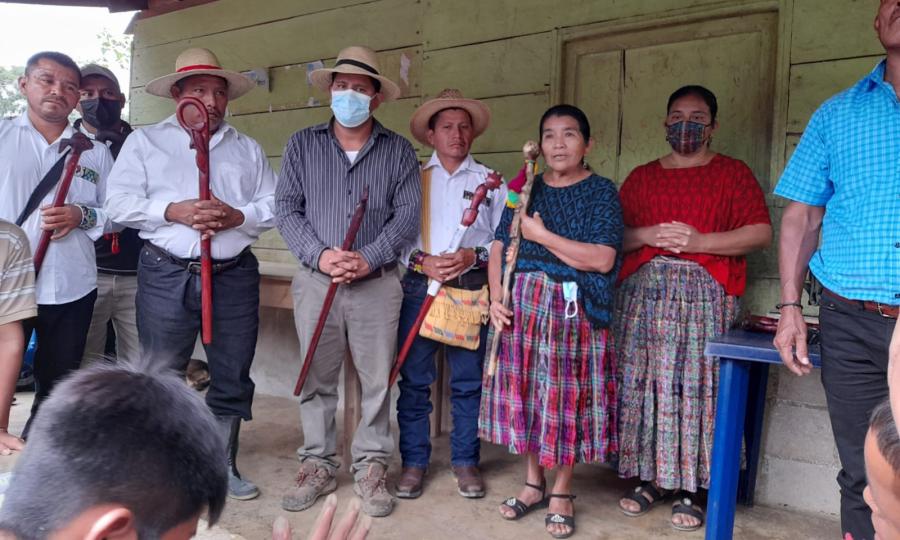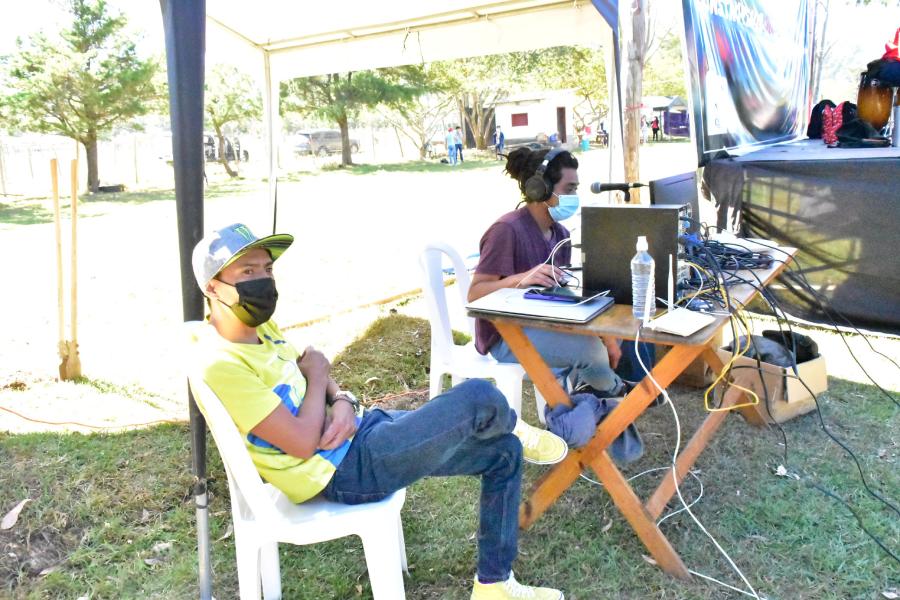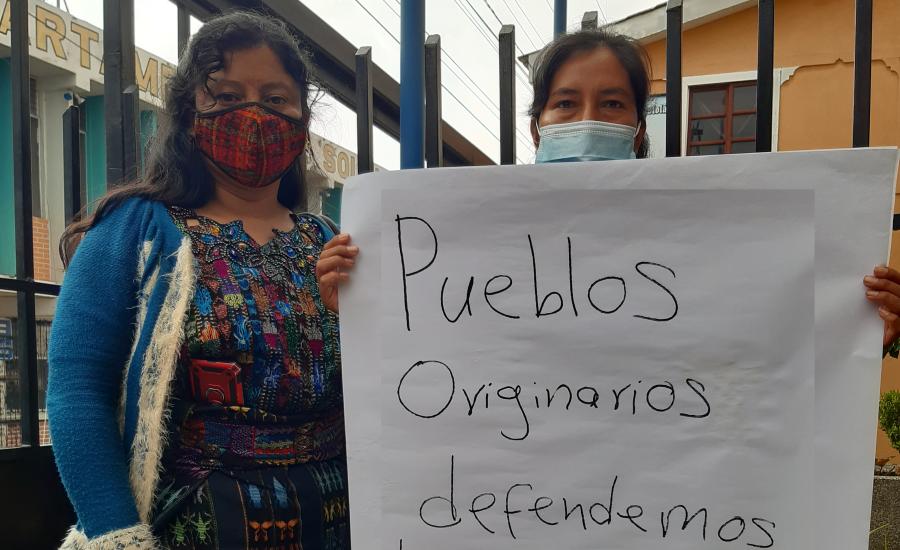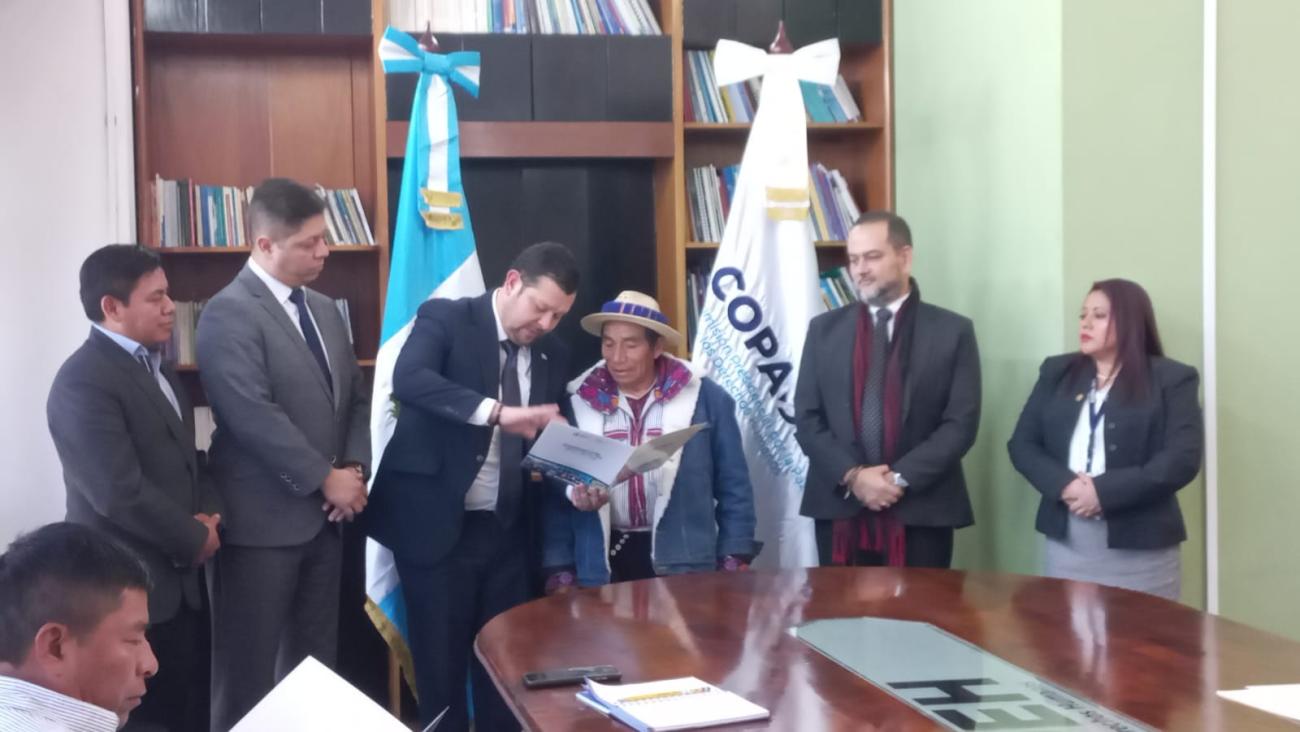
By Cesar Gomez (Maya Pocomam, CS Staff)
More than two years after the Inter-American Court of Human Rights ruled in Indigenous Maya Kaqchikel Peoples of Sumpango vs. Guatemala that the State of Guatemala must pay reparations to Indigenous community radio stations, the State is finally set to comply. The ruling, issued on October 6, 2021, and published on December 17, 2021, found the State of Guatemala responsible for violating the freedom of expression of Indigenous Peoples based on Article 13.2 of the American Convention on Human Rights and ordered reparation measures to compensate communities for the damage caused by raids on community radio stations and the unlawful criminalization of journalists.
In a formal ceremony held on December 19, 2023, at the Presidential Commission for Peace and Human Rights (COPADEH), Executive Director Ramiro Alejandro Contreras Escobar reiterated his commitment to fulfill his mandate and comply with the law: “Today, the communities or towns involved in the community radio versus Guatemala ruling were summoned. The purpose of the meeting was to deliver the proof of commitment, which refers to the payment of compensation that was established in the ruling handed down by the Inter-American Court of Human Rights. We are about to conclude internal financial administrative procedures so that the national treasury can subsequently accredit the beneficiaries within the sentence,” he said.
Representatives of the communities and community radio stations who were in attendance (whose names are being withheld for their safety) expressed their excitement upon learning that the Presidential Commission intended to comply with the Court’s ruling. "We are taking very significant steps regarding freedom of expression," one representative said.
Other community representatives expressed the desire to continue dialogues with the Presidential Commission, noting that there are still pending points to be fulfilled. In thanking the Inter-American Court for its mediation, they commented, “We want [the ruling] to not be a window, but a door.” Paragraph 173 of the ruling cites Article 63.1 of the American Convention on Human Rights: “any violation of an international obligation that has caused damage entails the duty to adequately repair it.”
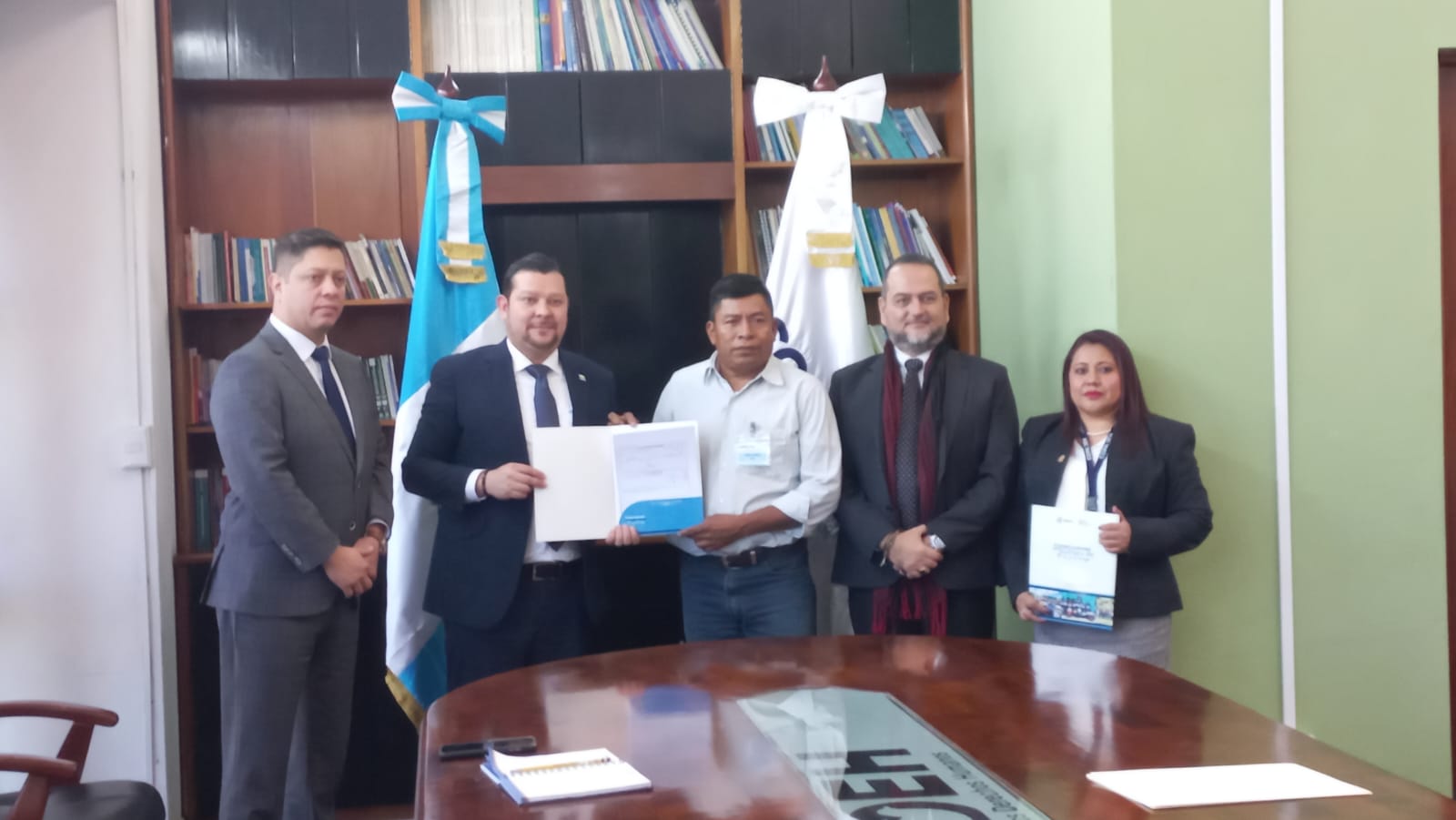
After the ruling was published, the heads of the State agencies in charge of complying met without first holding any consultations with the affected communities. In early 2022, representatives of Indigenous communities and community radio stations made several requests for a hearing with the Presidential Commission, with no response. They requested the Guatemalan National Revolutionary Unit and the left-wing political party Winaq summon Congressional officials from the Presidential Commission, the Judicial Agency, and the Superintendency of Telecommunications, among others, to be questioned about their refusal to hold an open dialogue with the affected communities and about their lack of commitment and political will to comply with the ruling.
Initially, community members were told by State officials that there were no funds available to pay compensation “and that we had to wait our turn,” because there were 36 other court sentences to comply with. Lawyers from the Suffolk University Law Clinic, the Mayan Lawyers Association, the community radio movement, Cultural Survival, and Association Sobrevivencia Cultural, drafted a plan to sue the State for its obligation to comply with the ruling for compensation.
Community members grew frustrated when the meetings did not show concrete progress, as the heads of government departments appointed people who were not in charge of making decisions and the Presidential Commission had to be called to order to guarantee the presence of decision-makers at meetings. In 2022-2023, multiple requests were made to the Ministry of Finance to expand the Commission’s budget in order to comply with the court’s ruling, though the additional requested funding never materialized. The first suggestion of compensation wasn’t made until late in 2023, in a process that required the communities to fill out forms and provide other supporting documents.
With the signing of the 1996 Peace Accords, the State committed to provide Indigenous communities with radio frequencies to enable them to broadcast locally. Unfortunately, this commitment has not yet been fulfilled. For more than 20 years, the Public Ministry continued to persecute Indigenous community radio stations with illegal raids and imprisonment of broadcasters who demanded their right to freedom of expression. Meanwhile, smear campaigns were carried out against community media, accusing them of being illegal, pirates, and terrorists, among other pejoratives.
With the incoming administration, progress is expected on the pending issues, including that Congress approve a law recognizing Indigenous community radio stations and that all criminal cases opened against communicators will be dropped. “If it were not for the insistence and demands of the communities, the payment would not have been achieved,” Sunun said, adding, “There is much hope for change with the new government. We hope that suitable people committed to human rights and social justice will be appointed to State agencies.”
“The reparations do not fully compensate for the damage caused to Indigenous Peoples. However, they will be used for the benefit of radio stations and the community,” station representatives said.
